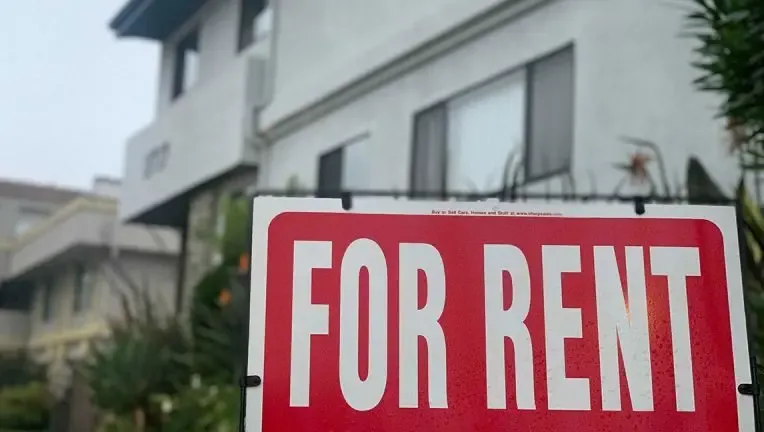Florida’s vibrant rental market has seen significant shifts in recent years, with rent prices often fluctuating. Understanding your rights as a tenant in Florida is essential, particularly when it comes to rent increases. Florida has no statewide rent control laws, but certain factors and local ordinances can still influence how and when your landlord can increase your rent.
The Absence of Rent Control in Florida
Florida state law does not impose rent control. This means landlords generally have broad discretion to increase rent as they deem fit, provided they give tenants sufficient notice in line with the lease agreement and any local ordinances.
Factors Influencing Rent Increases
Several factors can drive rent increases in Florida:
- Market Demand: High demand for rental properties in popular areas can lead to landlords raising rents.
- Property Improvements: Landlords may justify rent increases if they’ve made significant upgrades or renovations to the property.
- Rising Costs: Increases in property taxes, insurance, or maintenance expenses can prompt landlords to pass on some of these costs to tenants.
Proper Notice Requirements
While there’s no limit on the amount a rent increase can be, Florida landlords must adhere to specific notice requirements outlined in your lease agreement:
- Lease Term: If you have a fixed-term lease (e.g., a one-year lease), the landlord cannot increase the rent during the lease term unless a specific clause in the lease allows it.
- Notice Period: For periodic leases (month-to-month), the landlord must provide a minimum notice period before a rent increase takes effect. This is usually 15 days for month-to-month agreements but can vary based on your rental contract.
Local Ordinances and Notice Periods
Some Florida cities and counties have enacted local ordinances that may govern rent increases or notice periods. For example, Miami-Dade County requires a 60-day notice for rent increases exceeding 5%. It’s crucial to check your local ordinances to understand any additional requirements in your area.
Retaliatory Rent Increases
Under Florida law, landlords cannot increase your rent in retaliation for actions like:
- Requesting necessary repairs to maintain habitable conditions.
- Joining a tenants’ union or exercising other tenant rights.
- Reporting health or safety code violations to authorities.
Proposed Legislation and Potential Changes
It’s important to be aware of proposed legislation that could bring significant changes to Florida rent increase laws. House Bill 31, filed in September 2023, proposes limiting rent increases for existing tenants to a maximum of 30% over a 12-month period. Exceptions would exist for cases where the landlord’s costs significantly exceed this threshold due to matters like increased taxes or repairs. This bill, if passed, would take effect in July 2024.
Protecting Yourself as a Tenant
Here’s how you can protect your rights as a Florida tenant:
- Know Your Lease: Carefully read your lease agreement, paying close attention to clauses regarding rent increases and notice periods.
- Document Everything: Keep written records of any rent increase notices, repair requests, and communication with your landlord.
- Research Local Laws: Check with your city or county government to learn about any local ordinances governing rental properties.
- Seek Legal Advice: If you suspect your landlord is acting unfairly or illegally, consult an attorney specializing in tenant rights.
- Tenant Resources: Organizations like the Florida Apartment Association (https://www.faahq.org/) or the Florida Bar (https://www.floridabar.org/) can offer additional resources and support.
Navigating Florida’s Rent Increase Landscape
While the lack of statewide rent control can create uncertainty for tenants, understanding the factors involved can help you prepare for potential rent increases:
- Negotiate Strategically: If you receive a rent increase notice, consider attempting to negotiate with your landlord. A good rental history and willingness to sign a longer lease might give you some leverage.
- Explore Alternatives: If the rent increase seems excessive, research comparable rental properties in your area. This information can help you assess whether the increase is reasonable or if exploring other housing options might be necessary.
- Budget Accordingly: Factor potential rent increases into your budget to avoid financial strain. Set aside some savings, if possible, to help manage unexpected increases.
The Importance of Staying Informed
Florida’s rental laws are subject to potential change, especially with proposed legislation like House Bill 31. It’s essential to stay informed about the latest developments that could impact your rights as a tenant. Here are some ways to keep yourself updated:
- Monitor Government Websites: The Florida Legislature’s website (https://www.flsenate.gov/) provides updates on proposed bills and legislation.
- Tenant Advocacy Groups: Organizations that focus on tenant rights often track legislative changes and provide valuable information for renters.
- News and Media Outlets: Local and national news outlets may report on significant updates to rental laws in Florida.
Conclusion
Florida’s current rent increase laws favor landlords, giving them considerable flexibility in setting rents. However, understanding your rights as a tenant is crucial. By being informed about notice requirements, potential local ordinances, and staying aware of proposed legislation, you can better protect yourself against unreasonable rent hikes and make informed decisions about your housing situation.
Sources:
- Florida Statutes, Chapter 83 (Landlord and Tenant): http://www.leg.state.fl.us/statutes/index.cfm?App_mode=Display_Statute&URL=0000-0099/0083/0083ContentsIndex.html
- Miami-Dade County Code of Ordinances: [invalid URL removed]
- Florida Apartment Association: https://www.faahq.org/
- The Florida Bar: https://www.floridabar.org/
Disclaimer: This article provides general legal information and shouldn’t be interpreted as legal advice. If you have specific questions about your situation, always consult with a qualified attorney.

